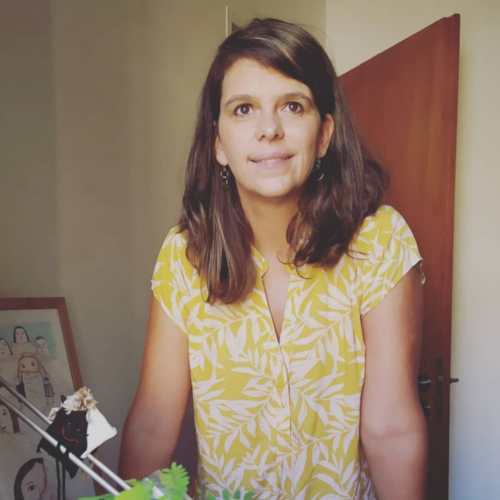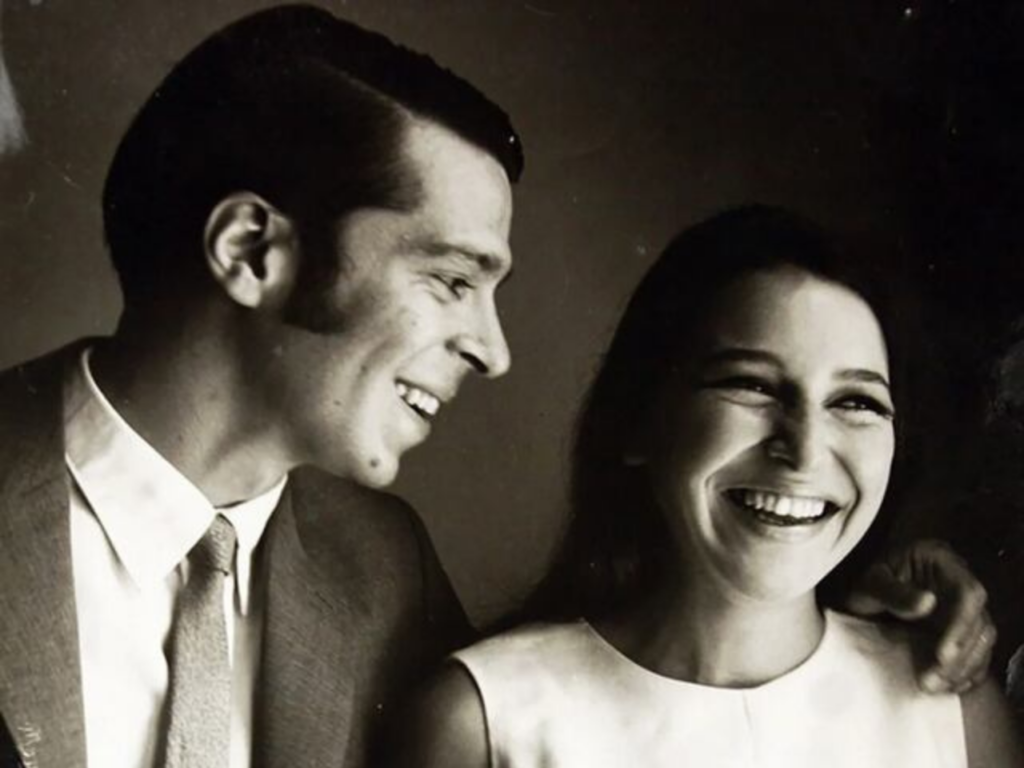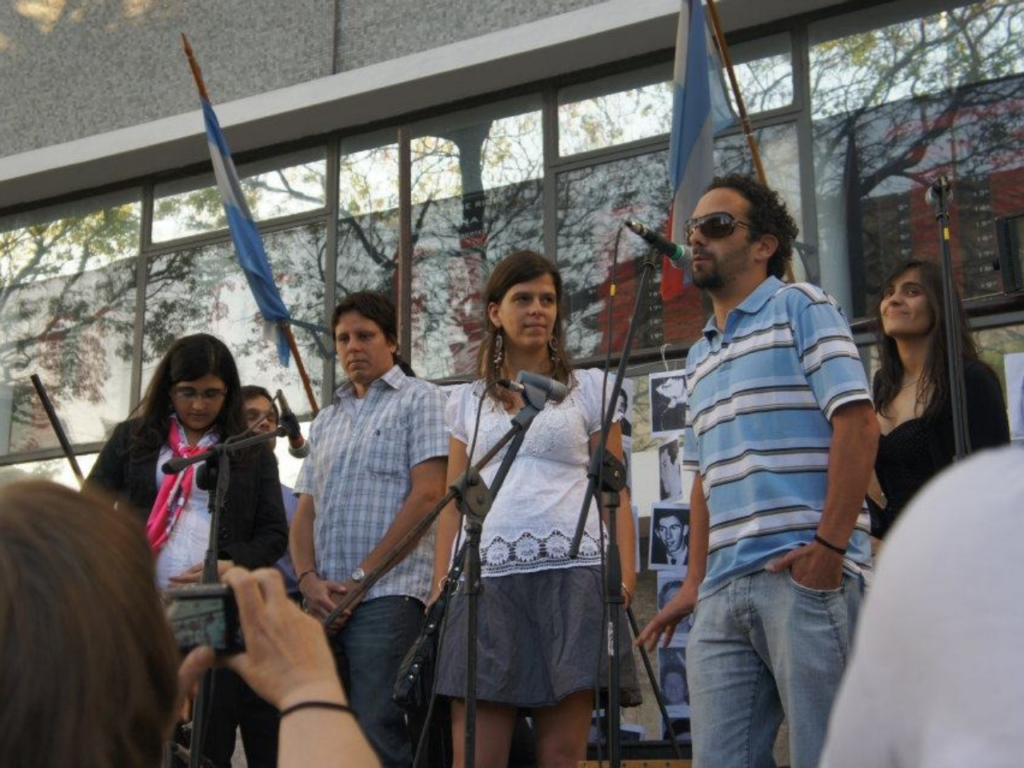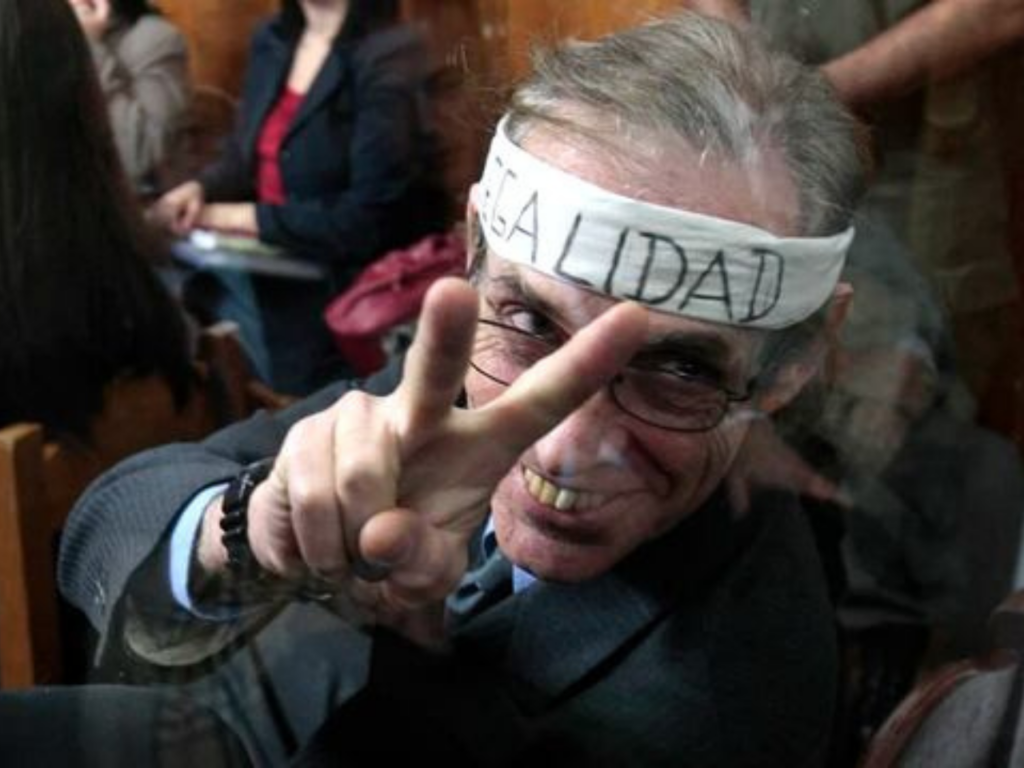A daughter of the disappeared confronts Argentina’s history: “The vice president-elect commends the very people who committed genocide”
Listening to Villaruel’s attempt to whitewash the history of such a sinister man proved difficult. Each mention of Amelong felt like a sharp stab in an old wound. This man remained responsible for abandoning me at barely a month old at the Hogar del Huérfano in Rosario and he could still hold clues to my twin’s whereabouts.
- 2 years ago
December 20, 2023

BUENOS AIRES, Argentina — At 29, I began a journey to uncover my origins, tracing back to Argentina’s military dictatorship. With the support of my adoptive family, I discovered the identity of my biological parents, an older brother, and a lost twin. Reconnecting with my older brother proved a significant step in piecing together my life story, but the mystery of my twin remains unsolved. We were all victims of Argentina’s military dictatorship.
Recently, a political debate on television caught my attention. I listened as now-elected vice president of Argentina Victoria Villarruel praised Juan Daniel Amelong, the man responsible for my fragmented identity. Her words served as a painful reminder of our nation’s dark past. Together with Abuelas de Plaza de Mayo and other people kidnapped as children, we use Villarruel’s rhetoric as strength to confront the truth of our nation’s history.
[Juan Daniel Amelong served as a member of Rosario’s 121st Intelligence Detachment, and in 2023 was finally convicted of the last of three life sentences for crimes against humanity. His convictions included kidnapping, torture, abduction, retention and concealment of minors, homicide, and forced disappearance.]
Read more stories on Argentina’s dictatorship at Orato World Media.
Hearing the story of my parents’ disappearance left me sick and bedridden for a week
My adoptive family always remained open with me – sharing everything they knew about my origins. While I was unaware of my full story, their nurturing and caring home provided a strong foundation for my life.
Yet, at 29 years old, a question haunted my mind: “Am I the daughter of disappeared people?” Unable to shake my doubt, I sought answers through a DNA test from Abuelas de Plaza de Mayo. Remarkably, at the same time, a court summons arrived at my adoptive parents’ home, marking the start of an inquiry into my origins.
With hearts racing, my adoptive sister and I embarked on a journey to uncover the truth. Our investigation led us to an interview with the former repressor Juan Daniel Amelong. In this interview, he talked about a baby abandoned in 1978, and the subsequent disappearance of that baby’s parents and twin brother. In a profound moment, my adoptive father said, “I think that baby might be you.”
My adoptive father’s words propelled me to seek further information. I delved deep, revealing the identities and stories of my disappeared biological parents Tulio and Raquel. As details emerged about their suffering – particularly my mother who they bound lifeless in the back of a car – tears filled my eyes. As hard as it was, I allowed myself to absorb every detail from the files and news articles I found.

Uncovering my history exacted a heavy toll on me, physically and emotionally. For a week, I struggled, bedridden and feverish. My body tried to cope with the intense story of my biological parents’ experiences, my abandonment, and the unresolved fate of my twin brother.
They had been searching for me for nearly 30 years
I continued searching after learning about my parents’ disappearance, hoping to find my extended family. As the pieces of my family history fell into place, I discovered not only a twin but also an older brother. This revelation spurred me on to locate him. After a heart-wrenching search, I found my older brother’s contact information and mustered the courage to call. Mixed with anxiety and anticipation, I dialed his number, and we agreed to meet.
The day I met my older brother felt unreal. Our embrace began to mend the pain of a family torn apart by the dictatorship. Immediately, we traveled all over Argentina, meeting our mom and dad’s sides of the family. It felt like a pilgrimage, rich with emotion and discovery.

After chasing clues and knocking on many doors, we finally tracked down one of our uncles in Santo Tomé. We decided on the spot to visit his house. The journey drained me emotionally and physically and I collapsed on the bed as soon as I entered.
Waking up the next morning and stepping out of the bedroom, I walked into a big and warm family reunion. Smiles greeted me everywhere, and the room filled with the aroma of warm mate and fresh cookies. A table stood in the center, covered with old family photos.
The room buzzed with an energy I’d never experienced before. Everyone seemed to breathe easier, relieved and happy to have found each other. Love flowed freely among us. I marveled at being part of this family that had been searching for me for nearly 30 years.
Many victims of the dictatorship remain missing, including my twin
The past few years, my older brother and I took on the task of getting to know each other and rebuilding our family ties. We committed to right the wrongs of the past and to search for my twin. I felt grateful for the opportunity to bring my family together after the dictatorship tore us apart.
Recently, while dining with my family, the television played in the background. We caught parts of the debate between Argentina’s vice-presidential candidates Agustín Rossi and Victoria Villarruel. Suddenly, Villarruel brought up Juan Daniel Amelong, the man responsible for so much of our suffering. Her words hit me hard, reviving the painful memories of discovering my roots as being the daughter of the disappeared.

Listening to Villaruel’s attempt to whitewash the history of such a sinister man proved difficult. Each mention of Amelong felt like a sharp stab in an old wound. This man remained responsible for abandoning me at barely a month old at the Hogar del Huérfano in Rosario and he could still hold clues to my twin’s whereabouts. The now-elected vice president twisted our experience to win an election.
Every day now, I take a moment to think about my twin brother’s life. I wonder if he had the opportunity to make his own choices and to find happiness. As a member of the Abuelas de Plaza de Mayo, I actively contribute to their cause and connect with others who had similar experiences.
This support network gives me hope, even as the chances of finding my disappeared brother become slim. Many are still missing, making this search not just personal but a collective mission. It feels disheartening to see a part of Argentina’s society ignore or deny our history, but we press on.



































































































































































































































































































































































































































































